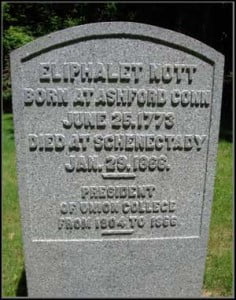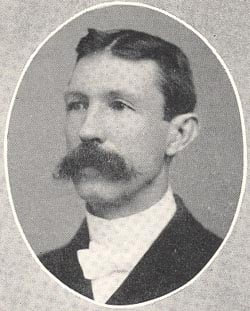STUDIES IN THE WESTMINSTER SHORTER CATECHISM
by Rev. Leonard T. Van Horn
Q. 45. Which is the first commandment?
A. The first commandment is, Thou shalt have no other gods before me.
Q. 46. What is required in the first commandment?
A. The first commandment requireth us to know and acknowledge God to be the only true God, and our God, and to worship and glorify him accordingly.
Scripture References: Exod. 20:3; I Chron. 28:9; Deut. 26:7; Matt. 4:10; Ps. 95:6; Ps. 29:2
Questions:
1. What are the three duties chiefly required in the first commandment?
The three duties are: (1) To know God. (2) To acknowledge God. (3) To worship and glorify God.
2. What is it we are to know regarding God?
We are to know that God is, or that there is a God. In addition we are to know God by acknowledging Him as the only true God as He is presented in His Word.
3. How are we to worship God?
We are to worship God by making Him the object of our desire and our delight.
4. How are we to glorify God?
We are to glorify God by first recognizing, in our heart, Christ as our Saviour and Lord and then living so that every action is aimed at the advancement of His glory and honor here on earth.
5. What are some practical ways by which we worship and glorify God?
We glorify God by putting nothing before Him in our thoughts, words, actions. By loving anything more than God, whether it is pleasure, our bodies, our loved ones, we would not be glorifying God.
6. Can we glorify God both inwardly and outwardly?
Yes, we can glorify God inwardly by trusting, by hoping, by delighting in Him, by thinking and meditating upon Him, by being filled with grief when we sin against Him. We can glorify God outwardly by praying, by praising, by being zealous to walk in the Spirit, by showing forth humility, and by seeking to do His will as expressed in His word. The Bible says, “Delight thyself in the Lord.” (Ps. 37:4). “Trust ye in the Lord forever.” Isa. 26 :4). “This thlng commanded I them, Obey my voice, and walk ye in all the ways I have commanded.” (Jer. 7:23),
THE DEAREST IDOL I HAVE KNOWN
When the Christian reads the first commandment and meditates upon it, a good commentary on it to be noted is one verse of the hymn entitled, “O For a Closer Walk With God”. This particular verse reads:
“The dearest idol I have known,
Whate’er that idol be,
Help me to tear it from Thy throne,
And worship only Thee.”
In order for the Christian to know, acknowledge, worship and glorify God it is certainly of foremost importance that the Christian know Christ as Saviour. This is indeed the foundation stone. But upon that rock-like foundation there must be added the gold, silver and precious stones of good works. This means a self discipline on the part of the Christian and has a lot to do with the Christian not putting other gods before the Almighty, Sovereign God.
Paul uses an interesting approach to this in 2 Cor. 5:9. “Wherefore we labour, that, whether present or absent, we may be accepted of him.” Or, as one translator puts it, “. . . we may be well pleasing to Him.” But it is so easy to put other things before this living solely to the glory of God, even things that seem, in themselves, right and proper. For example, the winning of souls or the leading in great revivals or the establishment of church or so many other things that could be mentioned. But our aim in life as born again believers is to do things purely to the glory of God. If we do otherwise we can be guilty of having little idols built up that become other gods. And such things trespass the first commandment.
Paul approaches the same question in another way: “But I keep under my body, and bring it into subjection: lest that by any means, when I have preached to others, I myself should be a castaway (disapproved).” Not that he is in danger of losing his salvation, but that he is in danger of losing approval by God, of not living to the glory of God. This means approaching our daily life with an attitude of disciplining ourselves, the disciplining of our thoughts. words, deeds. This means that we must, moment by moment, “mortify” (make dead) those things of the flesh that would not please God. This means that daily we must die to these things and never let them become idols to us. It does not take much for them to reach that state. Satan will see to that if we relax our discipline. May God help us to tear such from ourselves that we have no other gods before Him!
Published By: The SHIELD and SWORD, INC.
Vol. 4 No. 44 (August 1964)
Rev. Leonard T. Van Horn, Editor


